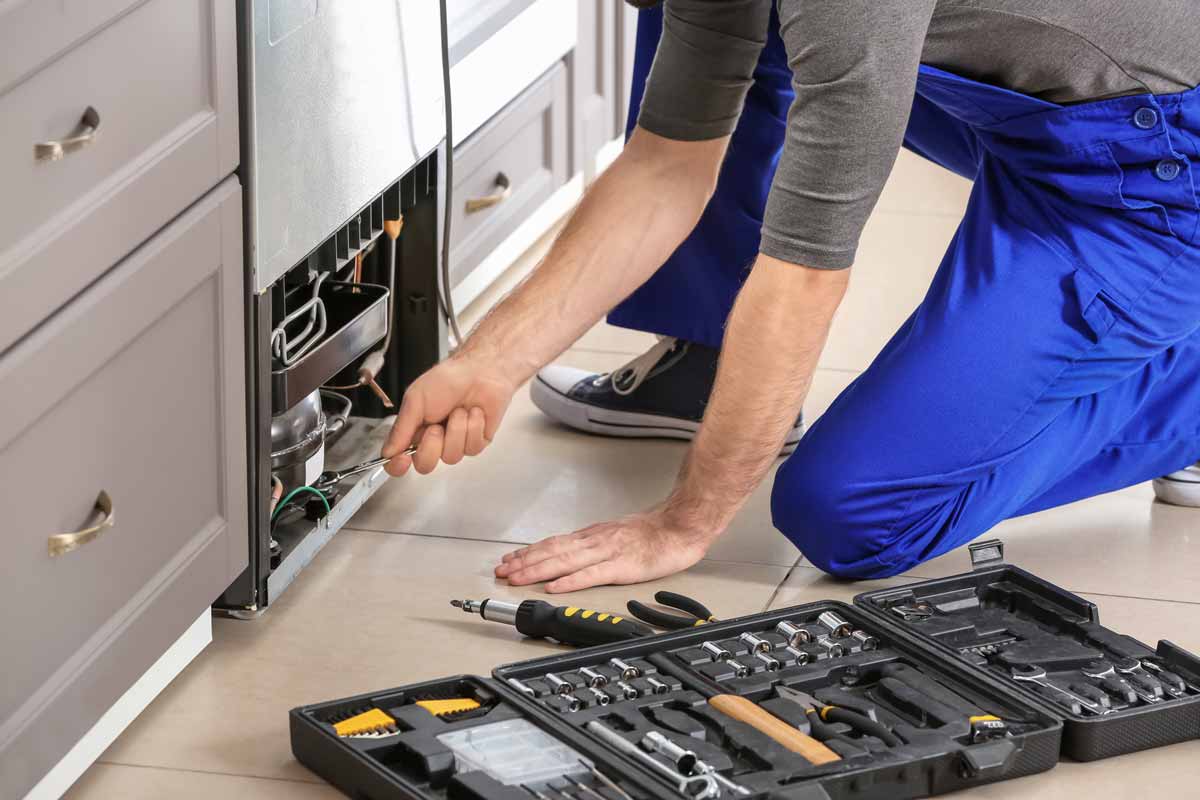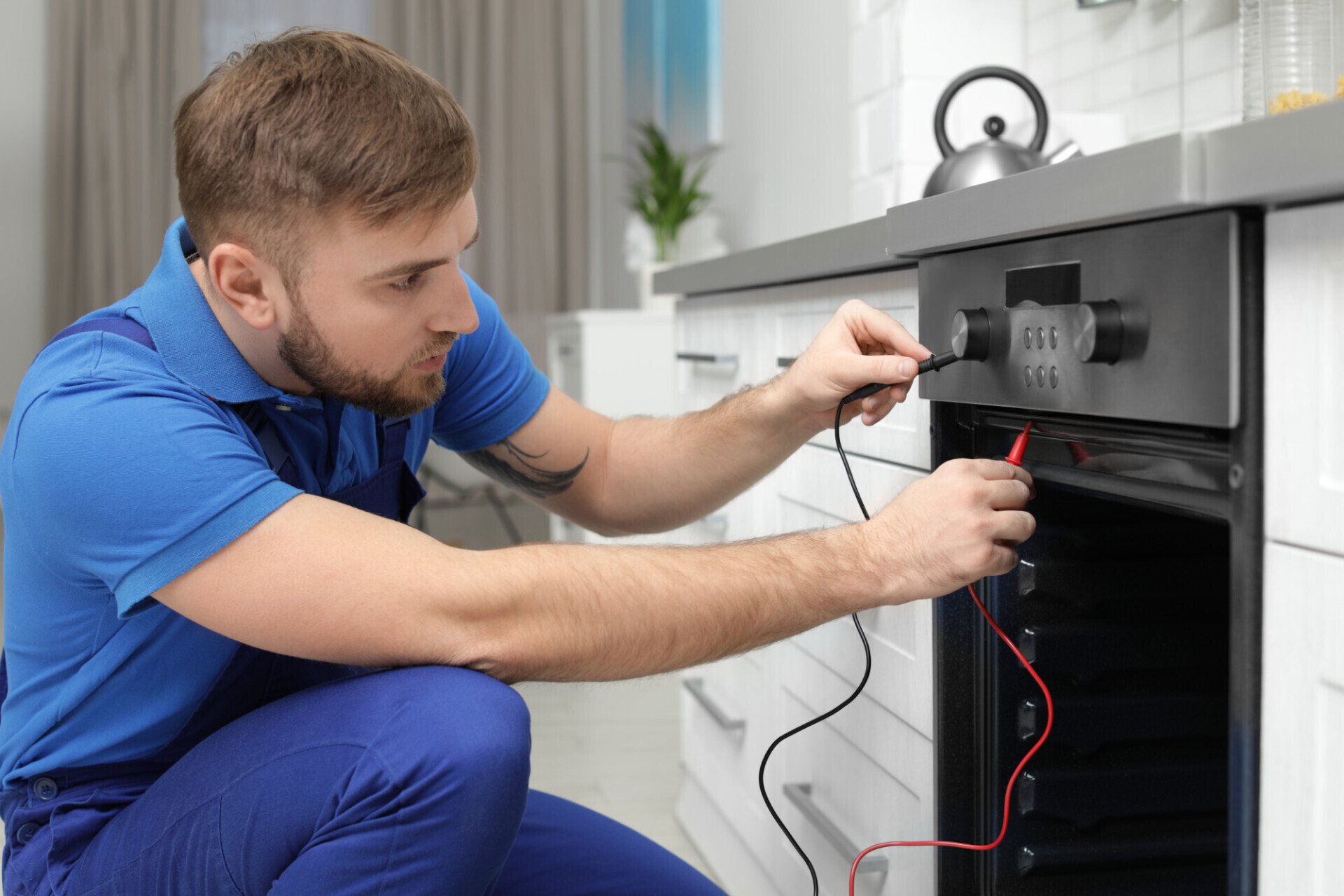Step-by-Step Washer Repair for Beginners – Dryer repair Oro Valley Dependable Refrigeration & Appliance Repair Service
The Ultimate Guide to Comprehending Device Repair Work in your home
When your fridge stops cooling or your oven declines to heat, it can feel frustrating. Understanding appliance repair service in the house can save you money and time. You'll discover to identify symptoms, make use of vital devices, and comply with an organized troubleshooting procedure. However before you begin, there are critical safety and security preventative measures you require to consider. What are the most typical issues, and how can you fix them? Allow's check out the basics.
Typical Appliance Issues and Their Symptoms
When your home appliances start breaking down, it's important to identify the signs at an early stage. Ignoring them can cause bigger problems and costly fixings. If your refrigerator isn't cooling appropriately, you might see warm areas or condensation creating. This might suggest a falling short compressor or a blocked vent.Your dish washer might reveal issues with dirty recipes or uncommon noises during cycles. If you listen to grinding or clanking, it's time to investigate.A washing machine that won't spin or drain can leave you with soggy washing, recommending a clogged up drainpipe or a malfunctioning pump.Lastly, if your stove's temperature seems off or it takes for life to preheat, you could be handling a defective thermostat. By staying alert to these signs and symptoms, you can resolve concerns before they rise into significant repairs.
Important Tools for Appliance Repair Service
When you're taking on device repairs at home, having the right devices is crucial. Basic hand tools like screwdrivers and pliers will help you disassemble and take care of different appliances, while electrical testing tools ensure you're working safely with circuitry. Let's review what you need to begin on your repair service trip.
Standard Hand Tools
Having the right devices is essential for efficient appliance repair work in your home. Beginning with a reliable screwdriver set, including both flathead and Phillips types, as screws prevail in appliance setting up. Pliers are additionally essential; they help with gripping, twisting, and cutting cords or tiny elements. A pair of needle-nose pliers can reach tight spots conveniently. You'll need a great flexible wrench for tightening up or loosening nuts and bolts. An energy blade is handy for puncturing product packaging or insulation. Do not fail to remember a durable workbench or surface to securely organize your devices and parts. With these standard hand tools, you'll be well-prepared to take on most home appliance repairs that come your way.
Electrical Screening Devices
Along with basic hand devices, electric screening gadgets play an essential duty in device repair service. These devices help you identify electrical concerns and warranty devices function securely. A multimeter is crucial; it gauges voltage, existing, and resistance, allowing you to pinpoint troubles quickly. A non-contact voltage tester is an additional must-have, letting you identify real-time cables without making straight call, enhancing your safety and security. Secure meters are great for gauging existing circulation in cables without detaching them, saving you time and initiative. In addition, circuit testers can swiftly check if outlets are operating effectively. By utilizing these gadgets, you'll improve your troubleshooting procedure and boost your repair work skills, making appliance maintenance a whole lot less complicated.
Step-by-Step Overview to Diagnosing Home Appliance Issues
When your home appliance breaks down, it can be frustrating, yet diagnosing the problem doesn't need to be overwhelming. You'll learn to determine typical problems and use efficient fixing strategies. Let's walk via the steps to obtain your appliance back in working order.
Usual Device Issues

Troubleshooting Strategies Explained

Fixing Significant Cooking Area Devices: A Closer Look
Have you ever before wondered just how to tackle typical issues with your kitchen home appliances? Repairing major kitchen area home appliances like refrigerators, ovens, and dishwashers can be much easier than you think. Start by identifying the trouble-- whether it's a fridge not cooling down or a stove that won't heat up. Commonly, a simple reset or examining the power resource can fix the issue.For fridges, clean the condenser coils and check the door seals. If your stove's not home heating, inspect the heating element and thermostat. Dishwashing machines may simply need a clean filter or a reset to get them back in action. Constantly unplug the device before diving into repairs to assure your safety.Don' t forget to speak with the individual manual for specific troubleshooting suggestions associated with your design. With a little persistence and the right tools, you can confidently deal with home appliance repair services and conserve money in the procedure!

Repairing Laundry Equipments: Tips and Techniques
When your washing home appliances begin breaking down, it can really feel overwhelming, yet repairing them does not have to be a trouble. Start by inspecting the power supply. Validate the device is plugged in and the outlet is working. Next off, check the door or cover button; a malfunctioning switch can avoid the equipment from operating.For washing machines, if it's not rotating, inspect for out of balance tons. Redistributing the clothing may solve the concern. If your clothes dryer isn't home heating, clean the lint filter and examine the air vent for blockages.Listen for uncommon sounds; they can indicate a trouble. If your device is dripping, inspect the hose pipes for splits or loose links. File any error codes shown on electronic screens, as they can guide you in recognizing the concern. Finally, get in touch with the individual guidebook for specific troubleshooting pointers connected to your model.
Safety And Security Preventative Measures to Take Throughout Repairs
Prior to you start any type of appliance fixings, it's essential to focus on safety and security to avoid accidents or injuries. First, disconnect the appliance or turn off the circuit breaker to guarantee no power reaches it while you work. Usage insulated tools to lessen the danger of electrical shock. Wear security goggles and handwear covers to secure on your own from sharp edges or debris (Lg Dryer repair near me Dependable Refrigeration & Appliance Repair Service).Make specific your work space is neat and well-lit, so you can see what you're doing. this link Maintain children and animals reference away from the location to avoid interruptions and prospective dangers. If you're dealing with gas devices, be extra mindful; look for leakages before proceeding.Take your time, and don't hurry via fixings. If you feel unsure regarding any type of action, it's better to stop and research study than to presume. Following these safety measures will certainly assist create a safer environment for your DIY home appliance repair job
When to Call a Specialist for Aid
Just how do you know if it's time to contact a specialist for device fixings? If you've tried fundamental troubleshooting without success, it's a clear indicator. For example, if your home appliance still will not start or reveals unusual noises after resetting it, don't be reluctant to look for professional help.When you see leakages, smoke, or melting scents, prioritize safety and security and call a pro right away. These concerns can lead to even more significant damage or pose dangers to your home.Also, if your device is under service warranty, speaking to a specialist is typically the ideal route. They can guarantee that repair work won't nullify your guarantee, conserving you money in the long run.Finally, if you're uncertain or awkward with complex repairs, it's sensible to leave it to the professionals. Keep in mind, tackling complex concerns without the best knowledge can lead to pricey blunders. Count on a specialist when unsure!
Regularly Asked Inquiries
Exactly How Can I Avoid Device Problems in the Future?
To prevent device problems in the future, you must carry out routine upkeep, look for wear and tear, tidy filters, and fix washing machine stay clear of overloading. Staying positive will assist expand their life-span and keep them running smoothly.
What Are the Most Typical Do It Yourself Device Repair Mistakes?
You might forget safety and security preventative measures, skip fixing steps, or make use of wrong devices when trying do it yourself device repair work. Hurrying the process or overlooking supplier guidelines can bring about even more significant problems and costly errors. Remain patient and notified!
How Do I Know if a Part Demands Replacement?
You can tell if a part requires substitute by looking for unusual sounds, leakages, or inconsistent performance. If the home appliance has a hard time to operate properly or reveals visible damages, it's likely time for a substitute.
Can I Utilize Generic Components for Home Appliance Fixes?
Yes, you can utilize common parts for device repair work, but identify they work - Dependable Refrigeration & Appliance Repair Service Dryer repair near me. Generic parts may save you cash, but they could affect performance or durability, so evaluate your choices carefully before choosing
What Service Warranties Cover Appliance Repair Works?
Most device guarantees cover repair work for producing defects, but they commonly leave out damages from abuse. Check your guarantee terms meticulously, as some may call for utilizing licensed professionals and original components for protection to remain valid.